Iran Denies Justice for Jewish Citizen; Immediate Execution Looms
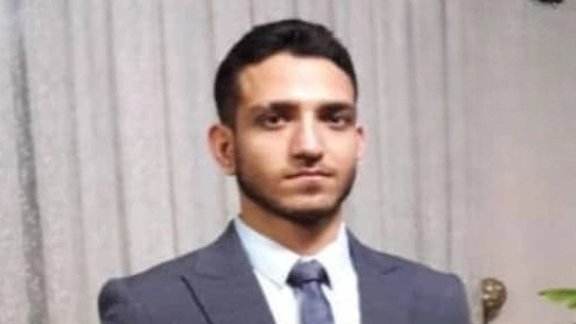
The Iran Human Rights Organization (IHRNGO) reported that the Supreme Court of Iran has rejected a retrial request for Arvin Ghahremani, an Iranian Jewish citizen.

The Iran Human Rights Organization (IHRNGO) reported that the Supreme Court of Iran has rejected a retrial request for Arvin Ghahremani, an Iranian Jewish citizen.
Ghahremani, at the age of 18, was sentenced to death for his alleged role in a fatal street brawl.
According to the IHRNGO, the decision places Ghahremani at immediate risk of execution, underscoring a judicial process marred by oversight and lack of fair representation.
Relatives of Ghahremani have voiced concerns that critical elements of his defense were ignored during the trial. These include his efforts to aid the injured party by attempting to transport him to a hospital and his subsequentefforts to save the man's life—details absent from the court documents. The family insists that he was attacked and only acted in self-defense, disarming the man who had assaulted him with a knife.
The Norway-based rights group is calling for a halt to Ghahremani’s impending execution and a transparent, thorough review of his case and others similarly jeopardized. The IHRNGO’s plea highlights a trend in Iran’s judicial proceedings, where the right to a fair trial is often supplanted by swift punishment.
On a broader scale, the IHRNGO's latest findings reveal that within the last month alone, at least 103 people were executed in Iranian prisons, marking an acceleration in the use of capital punishment. Mahmoud Amiry-Moghaddam, director of IHRNGO, criticized the global community for its silence on such executions, saying, "The international community's silence... is unacceptable and must end."
Amnesty International has also weighed in, reporting 853 executions in Iran in 2023, the highest in eight years.
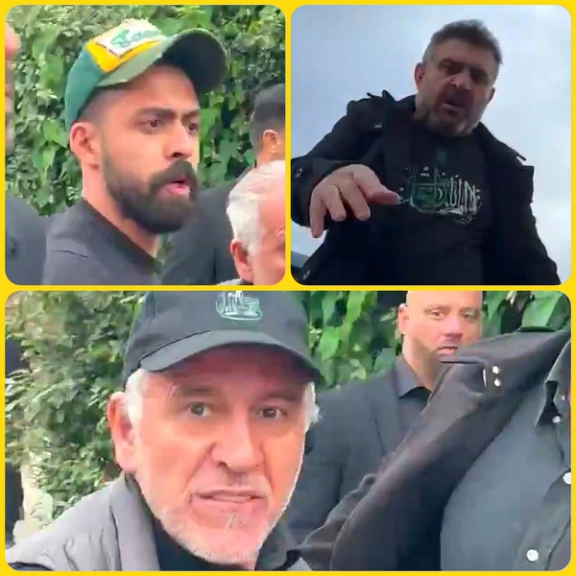
An Iranian protestor has sustained a severe spinal injury following an attack by Islamic Republic loyalists in London on Friday, according to activists who spoke to Iran International.
The attack targeted a group of Iranian dissidents celebrating Ebrahim Raisi's death outside a "community center" run by Islamic Republic loyalists, resulting in injuries to at least four people.
Late Friday, London’s Metropolitan police confirmed the incident and injuries to four people, adding that “their injuries are not believed to be either life-threatening or life-changing".
Speaking to Iran International English on Saturday, Iranian activist, Niyak Ghorbani who was present at the event refuted the police claim. Ghorbani added that one of the protestors identified with his first name as Navid had sustained serious spinal injuries and was currently still in hospital:
“He has sustained serious injuries to his spinal cord,” Ghorbani stated, adding that Navid is “unable to move his leg” and in severe pain.
Ghorbani further added that the attackers even followed them to the hospital.
“They [the attackers ] were waiting in the hospital until we informed the police that they had followed us…the police then called for a number of other police forces to come…and eventually they told them to leave the hospital…”
Ghorbani stated that the attackers “were waiting for them to leave the hospital” raising concerns for their safety even as the Iranian protestors were injured and being treated in hospital.
Moreover, another protest has been scheduled for 19:00 local time by Iranian dissidents in front of the Iranian embassy in London in protest to the vigil planned for Raisi, raising concerns for the protestors given Friday’s attacks.
London’s Metropolitan Police confirmed to Iranian journalist Saman Salmanpour that they are aware of the protest and stated:
"An appropriate policing plan will be in place to ensure both the safety of attendees and that the law is upheld."
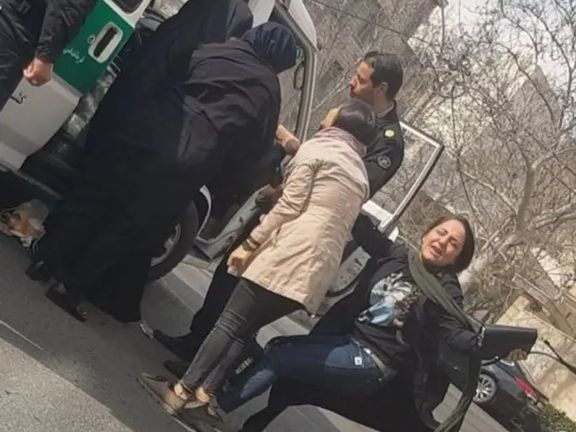
Hossein Hosseini, the Chief Justice of Iran’s Kordestan Province, has announced the establishment of a specialized branch at the Sanandaj Revolutionary Court specifically designed to handle cases of hijab removal.
Hosseini revealed that "a significant portion of those who commit hijab removal are under the ages of 15 and 18," highlighting the state's focus on penalizing young women.
The initiative is part of the broader Project Noor, which has ramped up enforcement of the Islamic Republic’s hijab laws, leading to increased violent confrontations on the streets as authorities clamp down on Iranian women. The forceful approach has sparked renewed global outrage.
Hosseini categorized individuals who remove their hijab into three groups: the first receives only a verbal warning for unintentional non-compliance; the second, includes those seen as encouraging others to unveil and are actively pursued by the authorities; the third group involves individuals accused of systematically challenging hijab, targeted by security and intelligence forces for organized defiance.
The newly launched court branch shows Iran's decision to criminalize what it perceives as “acts of rebellion” against its “moral codes,” particularly focusing on the youth. This strategy reflects the government’s desperation to assert control amid growing internal and international criticism.
Further unsettling reports have surfaced since the implementation of Project Noor, detailing police misconduct, including extortion, theft, andsexual harassment by officers tasked with enforcing hijab compliance. Such accusations exacerbate the already volatile relationship between the public and the police, eroding trust and stoking fears among the population.
Global human rights organizations, student bodies, and activists are vocally condemning such measures, highlighting the infringement on basic human rights and personal freedoms in Iran.
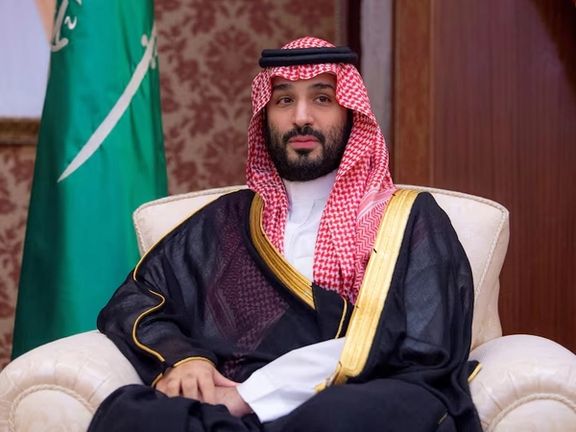
Iran's state media has once again reported that Saudi Crown Prince Mohammed Bin Salman has agreed to an invitation to visit Iran, although no date for the visit has yet been announced.
This marks the first potential visit by a Saudi royal to Tehran in over two decades, signaling another step towards diplomatic engagement after years of strained ties. However, last year Iran had also claimed that the Saudi price would visit.
According to IRNA, the state-run news agency in Iran, the visit was agreed upon after Mohammed bin Salman responded positively to an invitation from Mohammad Mokhber, Iran's acting President.
The announcement comes over a year after a détente that saw the two nations agree to reopen embassies and resume diplomatic exchanges following a seven-year freeze. Despite such moves, the relationship between Riyadh and Tehran remains fraught with suspicion and minimal substantive engagement.
Observers note that the détente has yet to bring about significant agreements or ease the primary points of contention that have long fueled hostilities between the two regional powers, especially the Houthi militias in Yemen.
The rivalry extends to disputes over key energy resources, with both nations staking claims on the vital Arash/Dorra oil and gas fields, which have yet to see a resolution acceptable to either party.
The diplomatic outreach occurs amidst heightened regional tensions, particularly due to Iran's support for various proxy groups that many see as destabilizing efforts in the Middle East. Despite discussions on potential economic cooperation and investment, deep-seated disagreements over fundamental regional issues continue to overshadow the slow-paced rapprochement.
Saudi Arabia cut diplomatic relations with Iran in 2016 after its embassy in Tehran was stormed during a dispute concerning Riyadh's execution of a Shiite Muslim cleric. Further tensions arose from ongoing conflicts, including missile and drone strikes by Iran's Houthi militia on Saudi oil facilities and tankers in the Persian Gulf, exacerbating the strain during a conflict that has spanned nearly a decade.
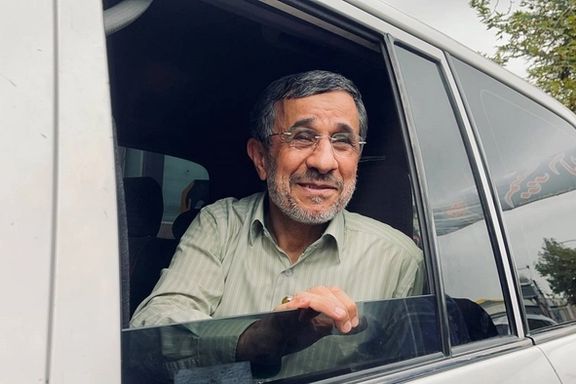
Former President Mahmoud Ahmadinejad announced that he is considering entering the upcoming presidential elections following the recent death of Iranian President Ebrahim Raisi.
Dolat Bahar Telegram channel, run by Ahmadinejad supporters, posted a video of him on Saturday addressing his fans and saying that he’s confident “the situation is changing for the better.”
“There are rapid changes taking place, not just in Iran but in the world, and I am hopeful that we will soon see the sweet changes,” Ahmadinejad said.
A new president will be elected on June 28th following the death of Ebrahim Raisi and his delegation in a helicopter crash last weekend.
Ahmadinejad supporters in the parliament have already welcomed his possible candidacy, claiming he’s “one of the most popular political figures in the country.”
Speaking to ILNA, Ahmad Alireza Beigi, a representative of Tabriz in the parliament, said, "If Mahmoud Ahmadinejad runs for president, he will win."
He also warned about the consequences of Ahmadinejad's disqualification without going into further detail. He was barred from running in the 2017 and 2021 presidential elections by the Guardian Council largely controlled by Supreme Leader Ali Khamenei.
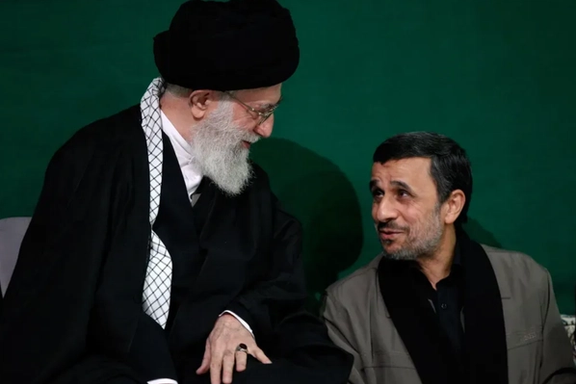
"Ahmadinejad must be assured that the Guardian Council will approve him for candidacy because if he signs up and is disqualified, it will have dire consequences," Alireza Beigi added.
After the former president was denied the chance to run in the 2017 elections, he became an outspoken critic of the system, even openly criticizing Mr. Khamenei. He has been walking a tightrope in the past two years and remaining mostly silent to avoid a backlash by loyalists close to the Supreme Leader.
Candidates seeking to run for the presidency, parliament, and the Assembly of Experts, which appoints Ali Khamenei's successor, must be approved by the Guardian Council, the constitutional election watchdog.
After Raisi's death, the Islamic Republic leader faces the challenge of re-engaging an electorate deeply disillusioned by recent elections. At the same time, efforts are being made to ensure that hardliners maintain control over the now largely ceremonial presidency, as state institutions undergo a purge to be filled entirely with Khamenei’s loyalists.
According to official statistics, 40.6 percent of eligible voters participated in the first round of the recent parliamentary elections. In Tehran, 24 percent of the population voted, the lowest in any election in the Islamic Republic's history.
Even lower turnout was recorded in the run-off elections earlier this month. In Tehran, where only seven percent of eligible voters cast their ballots.
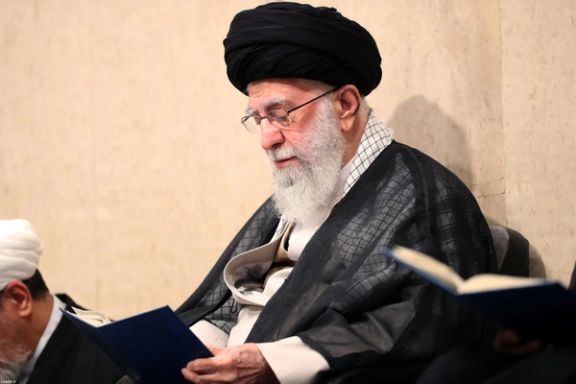
On Saturday, Elias Hazrati, the managing editor of Tehran’s leading reformist daily Etemad, pointed out that holding elections with low participation “is a disaster for any country and a more severe one for the Islamic Republic” since the vote of the people is used to validate the legitimacy of the system.
In regards to the elections, Iran analyst and journalist Morad Vaisi believes the Islamic Republic is about to enter its third phase.
“The first phase was about the left versus the religious right; the second phase was reformists against fundamentalists. The third phase involves military and security personnel,” Vaisi told Iran International.
“In the upcoming elections, we will not see any other faction members running; it will probably be someone among the military and security figures,” he added.
While many consider the Iranian presidency to be more of a symbolic post, with significant decisions made in Khamenei's headquarters, the eyes are on him to see what lies ahead in the country's political landscape.
Some also took the fact that the last three presidents—Hassan Rouhani, Mahmoud Ahmadinejad, and Mohammad Khatami—were not present at Raisi’s funeral on May 22, to be a symbolic gesture signaling the presidency's ever-eroding position since it was taken that they were not invited to the ceremony.
Additionally, Khamenei's apparent car-free attitude toward Raisi's death after the news broke about his helicopter crash and disregard for his role in the country were other indications of the disregard of the administration.

Student and labor unions from 19 universities in Iran have issued a joint statement declaring the death of Ebrahim Raisi and his companions as a cause for public celebration, likening it to a "national festival."
These groups view the helicopter crash that killed Raisi as a precursor to the fall of the Islamic Republic.
In their statement on Saturday, the signatories said, "We, the people, are rejoicing over the death of this criminal. Despite intense security measures in various cities, we have organized nightly celebrations with fireworks, dancing, and the distribution of sweets." They emphasized that recent days have been filled with joy and mockery directed at Raisi.
Ebrahim Raisi, the Iranian president, died last Sunday in a helicopter crash in the northwestern mountains of Iran. The news of his death, along with that of his foreign minister, Hossein Amir-Abdollahian, hassparked jubilation on social media. Many on social media celebrated the deaths citing their roles in human rights abuses and oppression over the past four decades.
In another part of the statement, the unions declare, "The nationwide solidarity and our boundless joy transcend mere emotional responses to the death of tyrants." They affirm, "This is the voice of mothers seeking justice."
Iran International reported on Monday that the deaths of Raisi and his entourage have brought joy to the families of dissidents killed by security forces during protests.
In conclusion, the statement calls on activists, organizations, and media to harness the public's "high spirits and nationwide solidarity" fromthe celebration to fuel the next steps toward "a victorious revolution." They urge a focused effort on accelerating the society-wide movement towards protests and strikes.